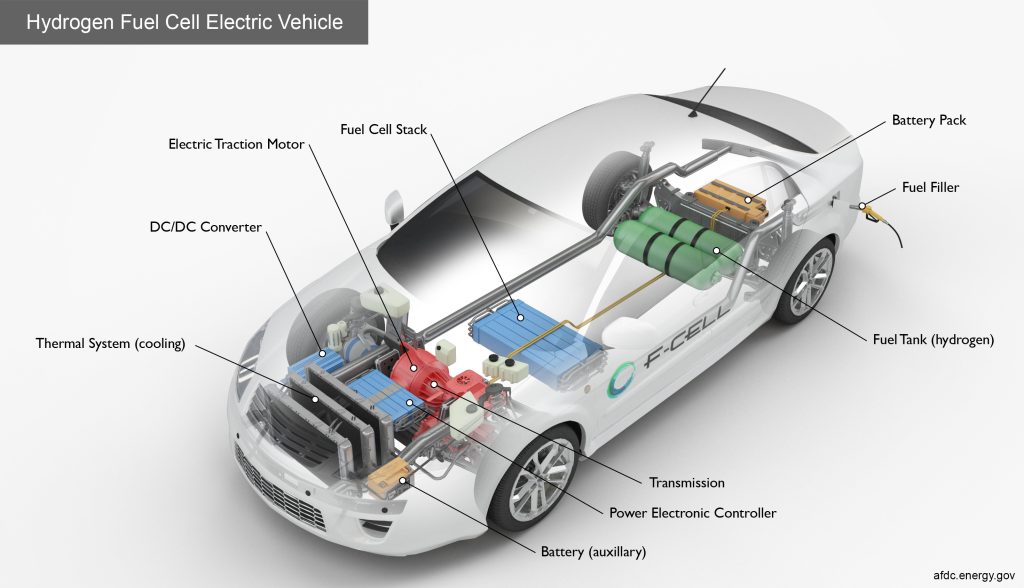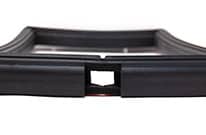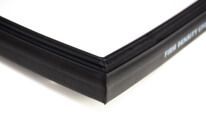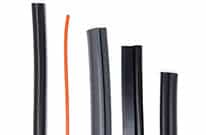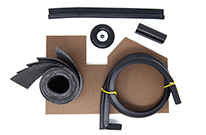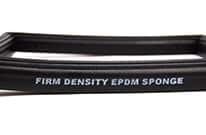Hydrogen vehicles aren’t as popular as electric vehicles, but they’re both forms of zero-emissions transportation that use electric motors to turn the wheels.
- In an electric vehicle (EV), a battery pack provides the electricity that’s required.
- In a hydrogen fuel-cell vehicle (HFCV), hydrogen passes through a membrane and combines with oxygen in the air to generate electricity.
Elasto Proxy supplies silicone hoses to ICE and EV manufacturers, but we can also supply custom hoses and connectors to manufacturers of HFCVs, hydrogen storage tanks, and hydrogen charging stations.
Keep reading to learn more about the products we offer, and contact us for a quote if you’re a manufacturer serving the growing hydrogen economy.
Silicone Hose Construction
Silicone hoses resist elevated temperatures, remain flexible at low temperatures, and withstand vacuum pressures. They’re also available with low levels of extractables, chemicals that can migrate from a material because of extreme temperatures.
That’s important since the contaminants from a hose material can affect the performance and durability of a hydrogen fuel cell. There are other challenges with HFCVs as well.
- Because hydrogen molecules are extremely small, tiny cracks and loose connections are more likely to cause leaking than with other gases at equivalent pressures.
- Although hydrogen generally is non-corrosive and won’t react with other hose materials, extreme temperatures and pressures can result in a condition cause hydrogen embrittlement.
Reinforcements and liner materials can reduce these risks.
- Metal wire reinforcements help to protect the hose from extreme pressures, including vacuum pressures, which can cause the hose to collapse.
- Fabric reinforcements typically use polyester or aramid in a multi-ply construction for added strength and high-temperature resistance.
Liner materials impart other specialized properties, such as expanded chemical resistance.
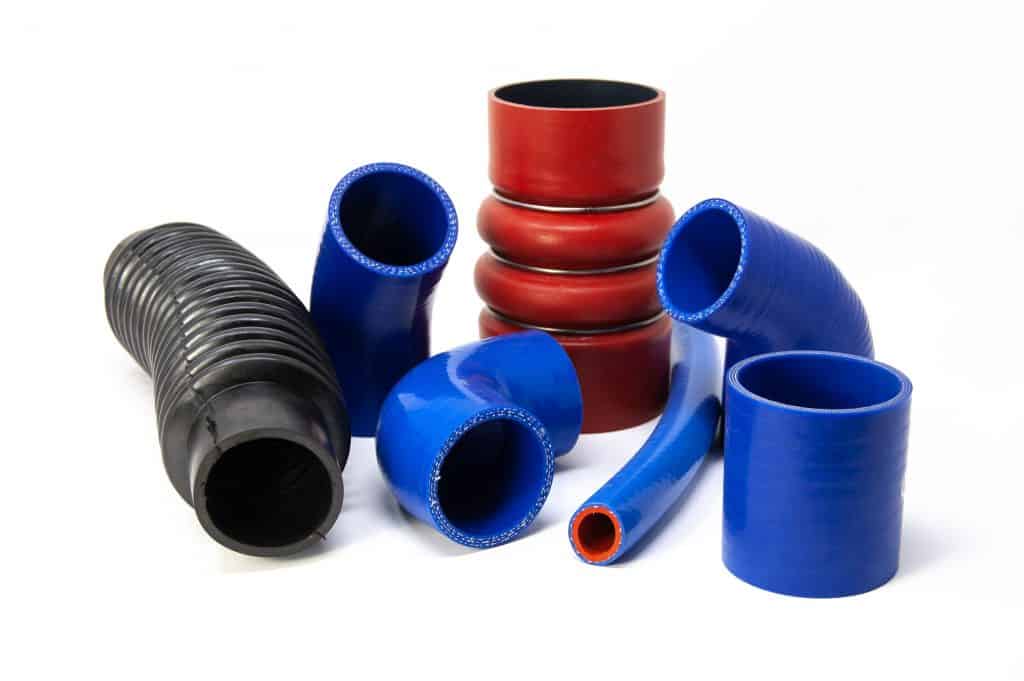
Types of Silicone Hoses for Hydrogen Vehicles
Elasto Proxy supplies the following types of silicone hoses and hose connectors for hydrogen vehicles.
- Elbows
- Reducer hoses
- Straight hoses
- Hump hoses
- Wrapped hoses
The following sections explain.
Elbows
Silicone elbows contain a molded bend (the elbow) that’s typically 45° or 90°. These products are available in various ply configurations to meet burst and flexibility requirements. Remember that burst pressure is typically four times the working pressure – the recommended maximum pressure for your application.
Reducer Hoses
Silicone reducer hoses provide a transition for two different sized hoses. Consequently, one end of the reducer is larger than the other. As with other types of silicone hoses for hydrogen vehicles, these products can contain reinforcements and liner materials.
Straight Hoses
Straight silicone hoses come in coils and can be cut-to-size at your facility or with Elasto Proxy’s water jet cutting equipment. They support the use of metal clamps and may contain fabric reinforcements. Some straight hoses have stainless steel restraining rings that reduce swell.
Hump Hoses
Silicone hump hoses support slight intake adjustments and bends. These hoses can also compensate for minor misalignments between pipes or tubes. In vehicles of all types, aramid-reinforced silicone hump hoses provide increased fatigue resistance at high-temperatures.
Wrapped Hoses
Silicone wrapped hoses provide enhanced pressure resistance because they contain nylon fabric strips that are wrapped around the outer diameter (OD) and then cured with pressure. Unlike smooth hoses, wrapped hoses have characteristics ridges.
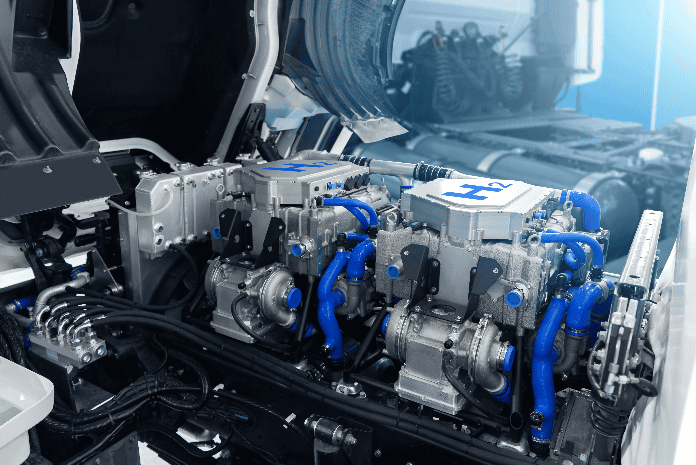
Standards for Silicone Hoses for Hydrogen Vehicles
Silicone hoses that convey hydrogen may need to meet these and other industry standards.
- NFPA – Hydrogen Technologies Code
- ANSI/CSAS HGV 4.2-2013 – Hoses for Compressed Hydrogen Fuel Stations, Dispensers and Vehicle Fuel Systems
- ISO 19880-5:2019 Gaseous hydrogen – Fueling stations – Part 5: Dispenser hoses and hose assemblies
Are you a manufacturer of hydrogen vehicles, storage tanks, or charging stations? Contact Elasto Proxy to discuss your application and to source all the products that you need. In addition to silicone hoses, we offer seals, gaskets, insulation, and molded rubber and plastic parts for HFCVs.

